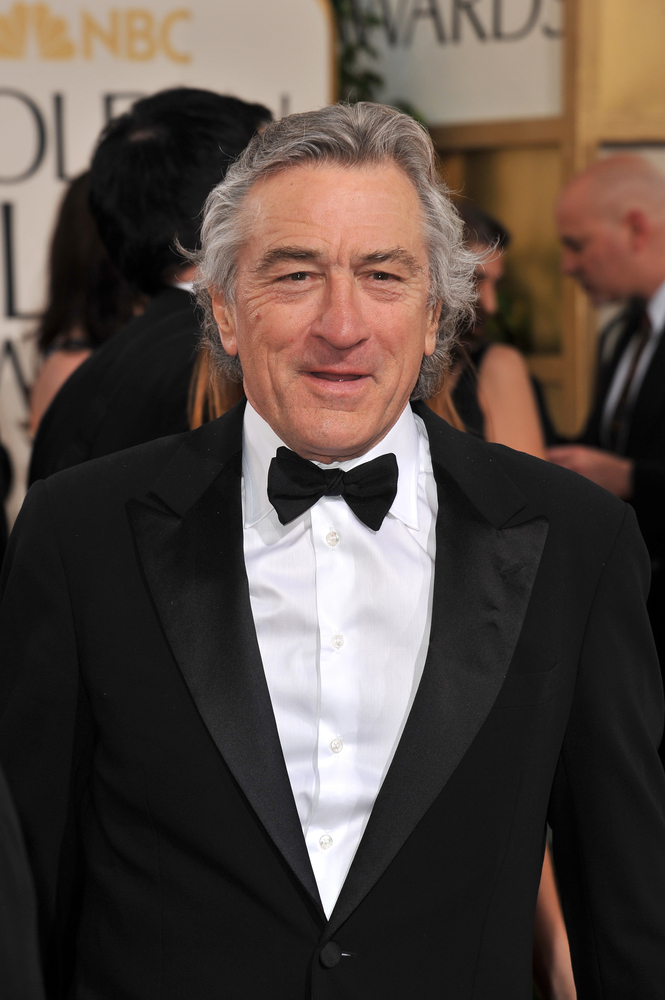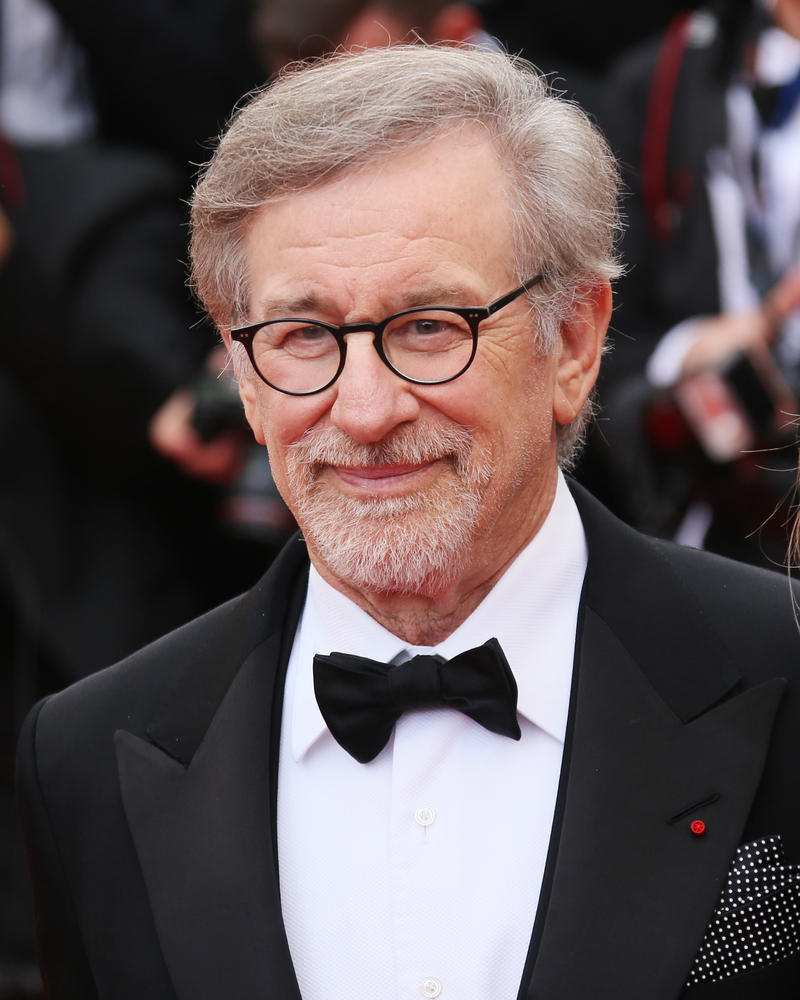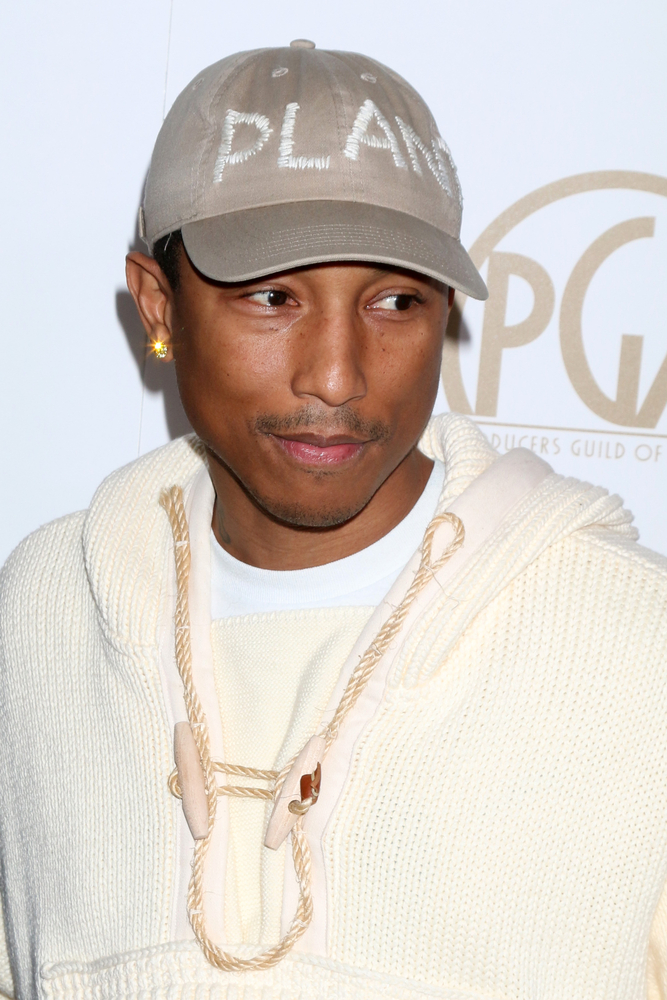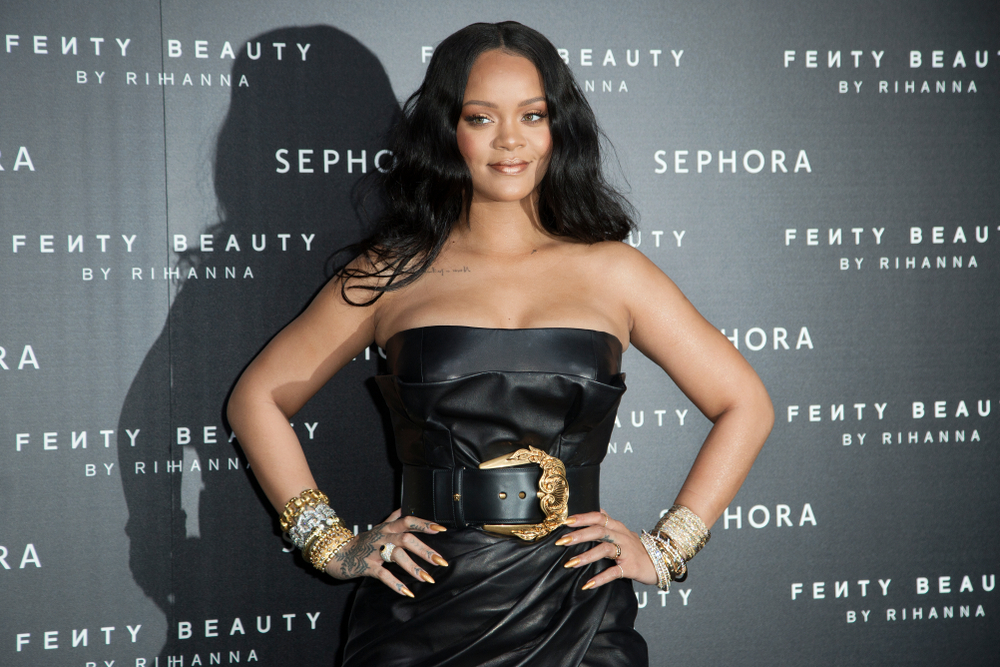From models to movie stars and social media influencers to musicians, it’s no longer unusual to see celebrities diversify their ventures into legitimate businesses. These icons have branched out to all sorts of undertakings. There are celebrity business owners with fashion labels, restaurants, hotel chains, and even production houses.
With their wide appeal, strong social media presence, and large amounts of capital, most celebrities unsurprisingly turn into entrepreneurs. However, while these stars may have a couple of advantages when building a brand, not all celebrity business endeavors are blockbusters.
Successful celebrity companies require well-thought-out, long-term business strategies. For instance, an effective marketing strategy plays a huge role in a business’s success. Without a strong marketing strategy, a celebrity’s business may topple its way into Hollywood’s growing list of failed companies.
This article will list celebrities who’ve made it big in the entrepreneurial game and those who had business ventures that didn’t work. What kind of business and marketing strategies did they use that helped launch their business to success? And why did some of these celebrity business pursuits fail?
Celebrities Who Shine As Successful Entrepreneurs
Numerous celebrities have built highly successful careers outside the entertainment industry. Aside from using their name, influence, and status to advertise their business, a significant part of their success is owed to groundbreaking business models, a passionate team of experts, and innovative marketing strategies.
1. Robert De Niro

Businesses: Nobu Hospitality, Tribeca Grill, Locanda Verde, and Tribeca Enterprises
Net Worth: $500 million
If you follow certain celebrities, you may have heard of Nobu. The high-end Japanese restaurant and hotel chain is popular among well-known stars like Drake, Justin Bieber, and Natalie Portman. It was founded by Robert De Niro and Chef Nobu Matsuhisa in 1994. Currently, the enterprise has 47 restaurants and 13 hotels worldwide.
“The Godfather” star also owns the fine dining restaurant Tribeca Grill, Italian restaurant Locanda Verde, and media company Tribeca Enterprises. De Niro’s business ventures have an estimated combined annual revenue of $61.3M.
The hotel and restaurant industry is a very saturated market. Nobu entered the industry with “an upside-down business model.” Nobu Hotels CEO Trevor Horwell shared to Forbes, “We are first led by food and beverage. We know that many hotels in the world have incredible rooms, lobbies, etc., but they don’t all have exceptional destination dining as part of their offering.”
Nobu Hospitality delivers top-notch experiences to all their hotels and restaurants. They ensure that these experiences translated to their potential customers by utilizing their social media channels. By producing high-quality and consistent content on social media, people are made aware of the luxury service Nobu provides.
2. Rihanna
bout to be in my ULTA bag!!
— Rihanna (@rihanna) February 17, 2022
Dats right, I can finally confirm that @fentybeauty is officially joining the @ultabeauty fam!!
March 6th pic.twitter.com/IGCYmafhOB
Businesses: Fenty Beauty and Savage x Fenty
Net Worth: $1.7 billion
Singer-actress Rihanna is also a billionaire business mogul. According to Forbes, Rihanna is now “the wealthiest female musician in the world, second only to Oprah Winfrey as the richest female entertainer.” She didn’t reach her billionaire status solely with chart-topping records and blockbuster movies; it’s also thanks to her beauty and lingerie company.
Her make-up line Fenty Beauty is worth at least $2.8B, and Rihanna owns 50% of the company, which means her share is estimated at $1.4B. Meanwhile, her Savage x Fenty lingerie label is worth an estimated $270M.
Fenty, both the beauty and lingerie line, is a brand that represents everyone—people of all ethnicities, skin colors, genders, and sizes. From day one, the brand established that it caters to a diverse customer base.
Fenty uses social media to connect with customers and highlight their products and values. You’ll see authentic product videos, user-generated content, Twitter memes, and other organic and unforced content on their accounts, which resonates with their young target demographic.
Since Fenty aims to connect with real people, its non-corporate brand presence shows that they understand people, strengthening the consumer-brand relationship and increasing sales.
3. Kylie Jenner
? @kyliecosmetics pic.twitter.com/xrHGIzsv8i
— Kylie Jenner (@KylieJenner) October 19, 2021
Businesses: Kylie Cosmetics, Kylie Skin, Kendall + Kylie clothing line
Net Worth: $700 million
In 2019, Forbes named Kylie Jenner, then 21 years old, the youngest-ever self-made billionaire. The reality TV star launched the wildly popular lip kit brand Kylie Cosmetics in 2015. Within a year, the popular Kylie Jenner business accumulated $307M in sales.
In just three years, Jenner’s highly influential status, combined with a great product and solid social media marketing strategies, helped her brand grow into a $900M business. Her content marketing strategy includes tapping into the right audience and producing relatable and high-quality content like useful, unique, and personal YouTube video make-up tutorials.
Jenner shares these with millions of followers and gets her content syndicated everywhere. Her content creates more buzz because it’s also shared on different websites and platforms.
Lastly, she creates urgency based on scarcity. Kylie Cosmetics products are either sold out or recently restocked, so sharing that with her customers will urge them to get their hands on the products sooner. This is a strategy she has done during her first launch and has stuck to ever since.
In January 2019, Jenner sold 51% of Kylie Cosmetics to Coty, Inc., but remains in charge of the brand’s marketing and creative efforts.
4. Oprah Winfrey
#OprahsFavoriteThings started in 1996 with a set of pajamas that I loved so much that I just wanted to share them with my entire studio audience—and here we are, 25 years later! pic.twitter.com/kj5QARYovd
— Oprah Winfrey (@Oprah) November 1, 2021
Businesses: Harpo Productions, Oprah Winfrey Network, Weight Watchers, True Food Kitchen, Oatly, and Apeel Sciences
Net Worth: $3.5 billion
The genesis of Oprah Winfrey’s businesses stemmed from her history as a talk show host.
For 25 years, she hosted her talk show, The Oprah Winfrey Show. When it ended in 2011, she launched her TV channel, the Oprah Winfrey Network (OWN). In 2020, Discovery Inc. took 95% of OWN, leaving Oprah with only a 5% stake in the company, but she remains the channel’s CEO and chief creative officer.
Oprah has also invested in various companies such as weight loss and fitness brand Weight Watchers, health food restaurant chain True Food Kitchen, oat milk company Oatly, and food technology company Apeel Sciences.
Time Magazine has named Oprah one of the “Most Influential People” in the world at least nine times. As one of the world’s most powerful and influential women, you may wonder what her marketing secret is.
Her branding is rooted in empathy. Personal branding isn’t only visual appearances; it also includes your personality, beliefs, and values. Good personal branding blurs the line between your brand and personality. Oprah’s strongest personality feature is empathy, which people love and makes her stand out.
You can see and feel empathy from how she speaks, chooses her words, and uses body language. She makes everyone feel connected, which in turn helps her tell others’ stories. Personal branding is storytelling, making people feel less alone, heard, and understood.
Nowadays, people buy people, not brands. Audiences will gravitate toward your brand if it feels authentic and relatable.
5. Ryan Reynolds
Steps to building a business empire include wearing glasses, sitting on stools, and taking black-and-white photos for @WSJMag. @MaximumEffort pic.twitter.com/k3grCcu3fk
— Ryan Reynolds (@VancityReynolds) October 28, 2021
Businesses: Aviation American Gin, Mint Mobile
Net Worth: $150 million
Ryan Reynolds is known as the witty and charismatic actor who plays the starring role in the movie Deadpool. Aside from being one of the highest-paid actors in Hollywood, he’s also a film producer and celebrity entrepreneur.
In 2018, Reynolds bought a stake in the liquor brand Aviation American Gin. He’s also a co-owner of Mint Mobile, an American telecommunications company.
The rest of Ryan Reynold’s business investments include film production company Maximum Effort, Welsh professional association football club Wrexham AFC, password management software company 1Password, and financial management company Wealthsimple.
Reynolds is the brain behind his brand’s most successful ads. He was a finalist for B2C Content Marketer of the Year in the 2019 Content Marketing Awards. With little to no marketing experience, how did he get there?
In his brands’ marketing campaigns, Reynolds uses authenticity. He naturally showcases his humor in ad campaigns and brand communications through tweets and email auto-responses. According to humorist and professor Dr. James Barry, humor in content marketing offers huge potential in B2B and B2C.
The right kind of humor helps engage your audience and build strong and meaningful relationships with them. Barry shares, “A brand has to entertain and connect the joke to their brand image. They’re using laughter to leverage brand familiarity.” He says that adding humor to your content also builds your brand authority. “You know the industry so well that you can joke about it.”‘
6. Kim Kardashian
Businesses: SKKY Partners, SKIMS, SKKN by Kim, KKW Beauty and KKW Fragrance (to be rebranded), and Kim Kardashian: Hollywood
Net Worth: $1.8 billion
Kim Kardashian’s business empire started even before she became a socialite and TV personality. In high school, she resold clothes and shoes bought as brand new from stores or curated from her closet.
By 2006, she opened a retail store called DASH in Calabasas, California, with her sisters, Kourtney and Khloé, and promoted it on their reality TV show, Keeping Up With The Kardashians. You can call DASH the “Kardashian store” because of its beginnings.
Since then, Kim has built her businesses and managed some with her sisters. Collectively, they launched the beauty brand Kardashian Beauty and the souvenir store Kardashian Khaos. Alone, Kim launched fragrances, retail subscription services, jewelry, mobile apps and emojis, a children’s clothing line, beauty products, and shapewear.
While some of her and her family’s ventures didn’t survive, those that did result from social media and influencer marketing tactics. Kim used her massive social media following to promote her existing brands like KKW Beauty and SKIMS.
Besides her sisters, Kim also tapped big celebrities, supermodels, and social media influencers like Megan Fox, Kate Moss, Tyra Banks, La La Anthony, Heidi Klum, and Addison Rae to promote the brand.
With over 5 million internet users worldwide, social media and influencer marketing will remain powerful in the digital age. They can effectively hyper-target and build specific audiences and track return on investment.
7. Jessica Alba
Business: The Honest Company
Net Worth: $100 million
Jessica Alba’s The Honest Company offers natural and eco-friendly alternatives to baby products that may have harmful chemicals. The actress-turned-businesswoman conceptualized the brand in 2008 when she broke out in hives after washing baby clothes she received from her baby shower.
Alba spent the next four years researching her business and target market and finding partners and investors. In 2012, Alba launched The Honest Company’s e-commerce site and consigned with high-end boutiques in New York and Los Angeles and major retailers such as Costco, Target, and Whole Foods.
By 2015, the brand has earned $250M in sales. Forbes also valued The Honest Company at $1M and Alba at $200M. The company went public through an initial public offering at $16 per share in 2021.
Today, The Honest Company invests 2% of its annual revenue on research and development and quality testing to offer safe and effective products. This move comes after it faced lawsuits for false advertising and increased competition over the years.
In a saturated market like baby products, Alba capitalized on conscious consumerism and influencer marketing to make her business stand out. She highlighted a glaring problem in the baby care product market and promoted her brand as the solution.
She even published a book called “The Honest Life” in 2013, where she narrated her experiences as a mother and highlighted the importance of creating a healthy environment for families. More than just boosting her business’s brand awareness, Alba also provided value to fellow parents with educational content.
8. Paris Hilton
Businesses: 11:11 Media, Slivington Manor Entertainment, and London Audio
Net Worth: $300 million
It’s easy to attribute Paris Hilton’s business success to her family, but she’s a businesswoman in her own right. Paris entered the business world with her fragrance empire, which earned $3B in revenue over the years. She ventured into music in 2006 with her debut album and DJing in 2012.
Paris has also built a handbag line sold in branded stores in the Middle East and Asia and held licenses for clothing, accessories, beauty, and watches. She owns several production companies: 11:11 Media (formerly Paris Hilton Entertainment), Slivington Manor Entertainment (in partnership with Warner Bros. Unscripted Television), and London Audio (in partnership with iHeartMedia).
More recently, Paris ventured into cryptocurrency, non-fungible tokens (NFTs), and the metaverse. She uses these innovations to support her advocacies, such as women empowerment.
With these many ventures, Paris bears many titles: businesswoman, influencer, activist, DJ, designer, investor, recording artist, philanthropist, host, actress, and model, among other things. How did she amass this much success?
She uses any opportunity to set trends and be several steps ahead of the competition. For instance, she’s known as the original influencer and an influencer marketing pioneer. She didn’t let her family name precede her hard work. She’s hands-on with all her product lines, especially fragrances, and only accepts brand endorsements that align with her views and lifestyle.
9. Ashton Kutcher
Businesses: Katalyst Media, A-Grade Investments, and Sound Ventures
Net Worth: $200 million
More than just a popular actor, Ashton Kutcher is a highly-motivated businessman and philanthropist. In 2000, he co-founded Katalyst Media, which produced his hit MTV TV series Punk’d. Ten years later, he co-founded venture-capital firm A-Grade Investments and invested in popular tech companies today, such as Skype, Spotify, Airbnb, Uber, and Foursquare.
The firm grew its $30M investment to $250M within six years.
Kutcher’s drive to support startups didn’t end there. In 2015, he co-founded another venture-capital company called Sound Ventures, specializing in early-, growth-, and late-stage venture investments. As of November 2022, the number of Ashton Kutcher’s business investments is 117—68 are personal investments, while 49 are partner investments.
When investing in a startup, he looks into three factors:
- The company’s founders are people he and his partners want to work with
- The company’s problem-solving mission statement is oriented around saving or enriching time
- The company can improve its business model through his venture capital firm’s involvement
Kutcher invests in companies he’s familiar with and whose values align with his instead of those that offer the biggest and quickest return on investment. For instance, he mostly invests in tech companies because he believes they have “the greatest potential to accelerate happiness of most things in the world.”
Kutcher’s shift from acting to investing also stems from his desire for growth and learning. His entrepreneurial spirit started when he was young. He used to mow lawns, wash dishes, and work on construction sites, usually after school and on the weekends. This drive remained even when he dropped out of college and pursued acting.
Celebrity Business Ventures That Flopped
As established earlier, fame and fortune aren’t enough to carry out a business venture successfully. You need to have your heart in it and some effective business/marketing strategies in play. The celebrity businesses below can serve as a cautionary tale and give you insight into what you shouldn’t do with your brand.
1. Steven Spielberg

Business: Dive! Restaurant
Steven Spielberg may be one of Hollywood’s most successful directors, but it doesn’t mean that all his ideas are award-winning. In the mid-1990s, Spielberg and Dreamworks CEO Jeff Katzenberg opened a submarine-themed restaurant called Dive! It had two locations, one in Los Angeles and the other in Las Vegas. The California location reportedly cost $7M to build.
The restaurant’s building was in the shape of a submarine, and every 30-45 minutes, blaring sirens would ring, signaling that the restaurant would be simulating a submersion. Also, the menu followed the theme, with “sub-lime desserts,” “substantial salads,” and submarine sandwiches.
The two Dive! branches showed early success, but profits took a dive as traffic faltered and merchandise sales dropped as time went on. Both restaurants closed in 1999 and early 2000s.
With Dive!, Spielberg’s fascination with undersea exploration overshadowed the business and forgot about the customer experience. Themed restaurants are a cool concept that can attract many tourists, but if the overall experience is low to average, repeat customers will be difficult to obtain.
Some reviews noted that the restaurant overcooked the food and the sauces were nothing special. Additionally, the environment gave a sensory overload that made young children too anxious to finish their meals.
Lesson to Learn: Customer experience should be your priority. Going into a business venture with just your passions in mind isn’t going to cut it in the entrepreneurial industry. You also have to be customer-centric and come up with ideas that will improve their experience.
2. Blake Lively
Well, at least it’s not a celebrity alcohol? Meet @BettyBuzz mixers pic.twitter.com/PkA0QiZxnp
— Blake Lively (@blakelively) September 23, 2021
Business: Preserve
Blake Lively is best known for her six-season performance on the hit show Gossip Girl, where she played Serena Van Der Woodsen—New York’s “it girl.” It seemed that Lively wanted to translate that lifestyle into real life as she made an effort to become a millennial Martha Stewart by launching Preserve, a lifestyle e-commerce site, in 2014.
The site was infamous for its over-the-top writing style and overpriced artisanal products. According to Lively, the reason why they had to close it down was that “it never caught up to its original mission: It’s not making a difference in people’s lives, whether superficially or in a meaningful way.”
There are also other reasons why the site folded, like how celebrity lifestyle brands are already oversaturated. Unless you’re doing something different or innovative, people can get bored quickly.
Additionally, Preserve was accused as tone-deaf. The site had an Antebellum period-themed photoshoot that romanticized the era when rich white women were slave owners. As soon as Lively launched the campaign, people were outraged.
Lesson to Learn: Be in touch with your audience. In a millennial market, following trends isn’t enough. You should also be sensitive to the political climate. Understanding your customers will guide you through your marketing campaigns and help you avoid PR nightmares.
3. Pharrell Williams

Business: Qream with a Q
Pharell Williams is the music magnate behind the chart-topping hits ‘Happy’ and ‘Blurred Lines.’ However, venturing outside music may not be his strong suit. In 2010, he launched Qream with a Q, a liqueur brand for women to “reward themselves deliciously.” Unfortunately, distributor Diageo pulled it off the market a little over a year in production due to poor sales.
Williams blamed Diageo for the company’s failure and sued for $5M. He claims that the distributor wasn’t marketing Qream as he intended the product to be. In Williams’ eyes, Qream was supposed to be a “high-end leisure class” drink, but it was marketed as a party and club drink.
Lesson to Learn: Discuss with your team. By being more involved with the brand, you can ensure that all marketing campaigns and strategies align with your vision. If there’s misalignment with your marketing efforts, how will it be successful?
Marketing Matters.
It’s easy to think that celebrities have the upper hand in launching businesses, with their influence and connections in tow. But, as proven above, a star’s name tied with a brand isn’t enough to sustain a business.
Marketing plays a vital role in a business’s success. The right strategies, campaigns, and initiatives will effectively hit your target audience and connect with your market. When your marketing efforts are strong, you establish yourself as a brand authority and gain your customers’ trust, making you their go-to brand.
To help strengthen and sustain your brand for years to come, consult with experts from a digital marketing agency like Spiralytics. We know the tips and tricks on how your business can avoid a miserable failure and meet the success you dream of.




